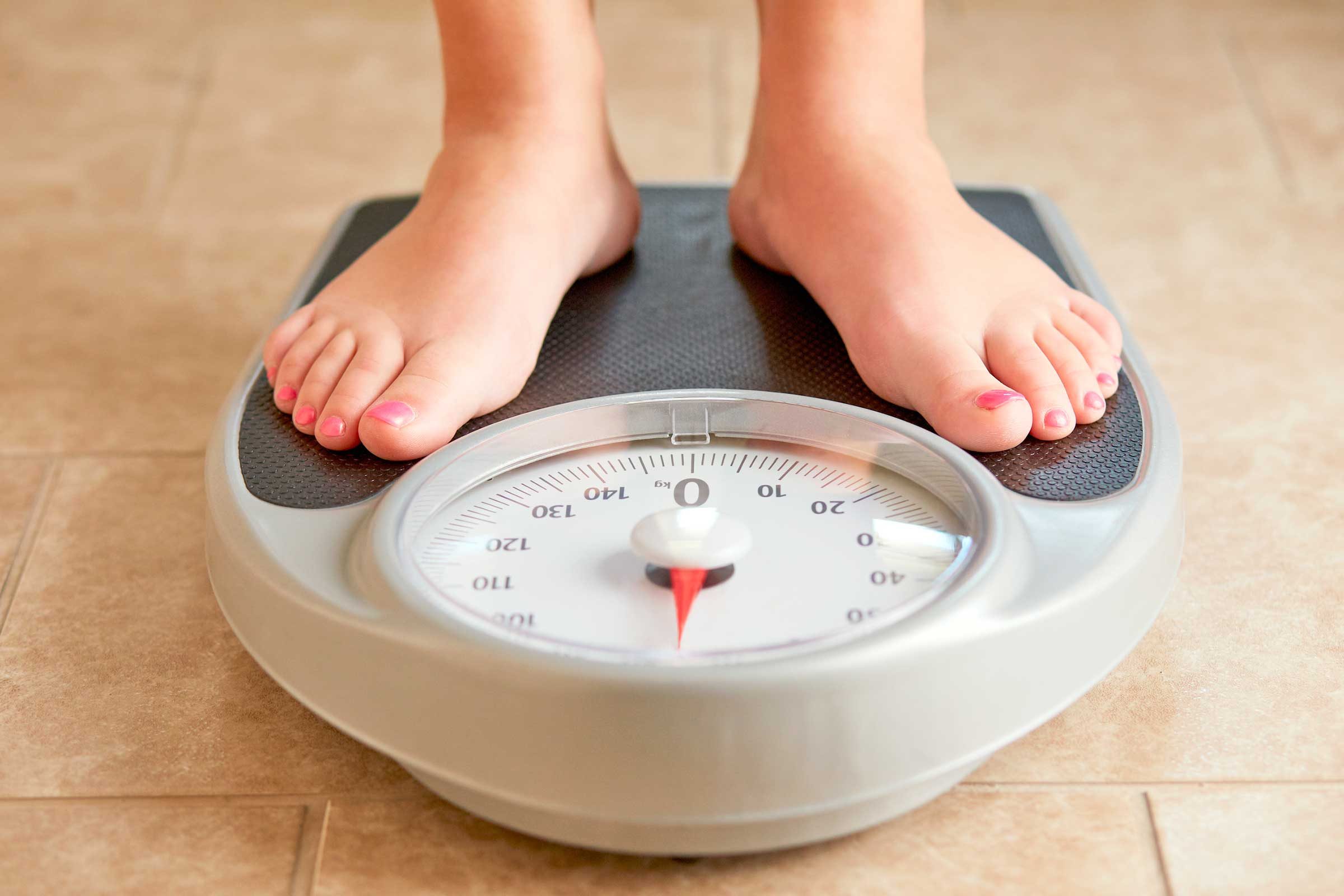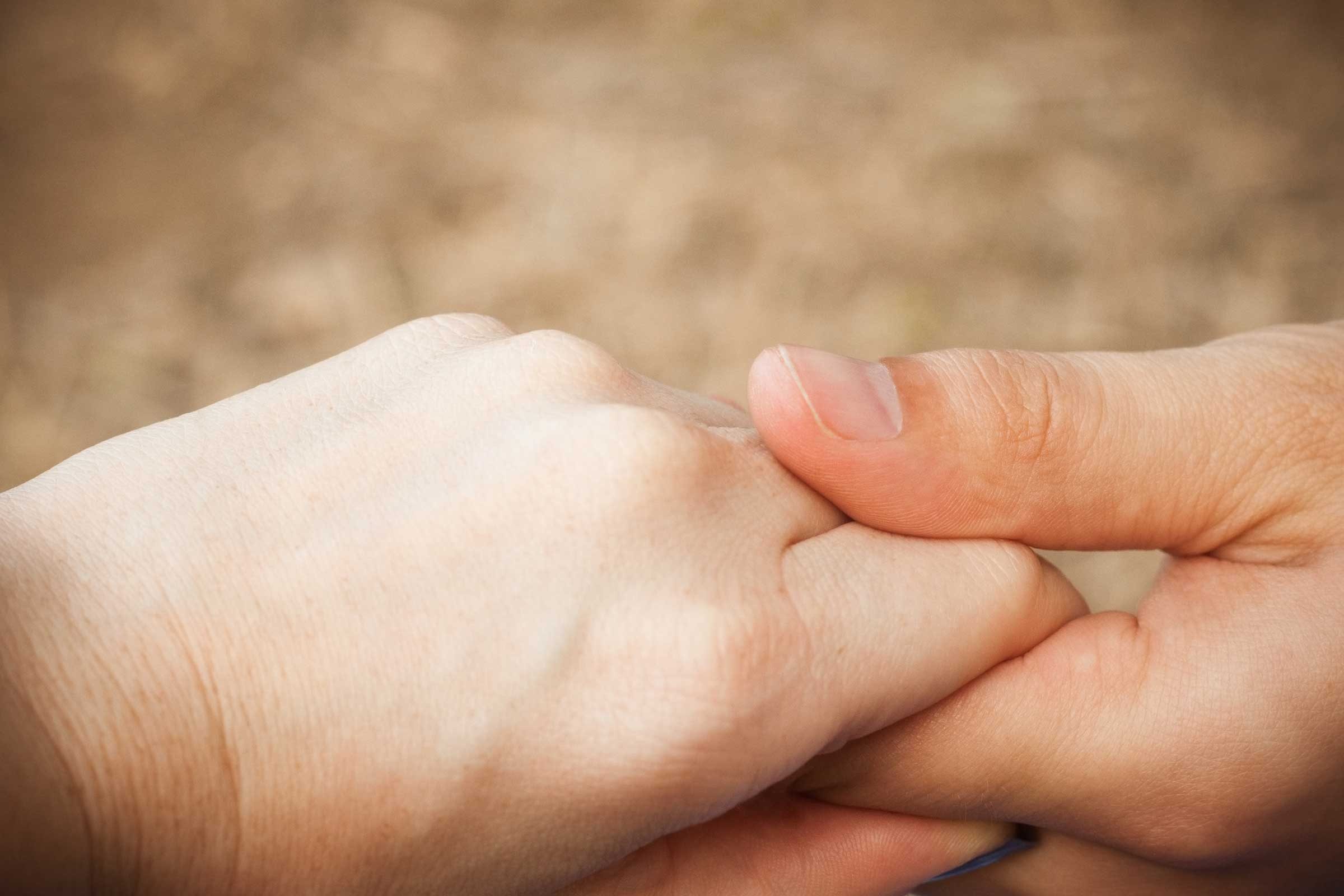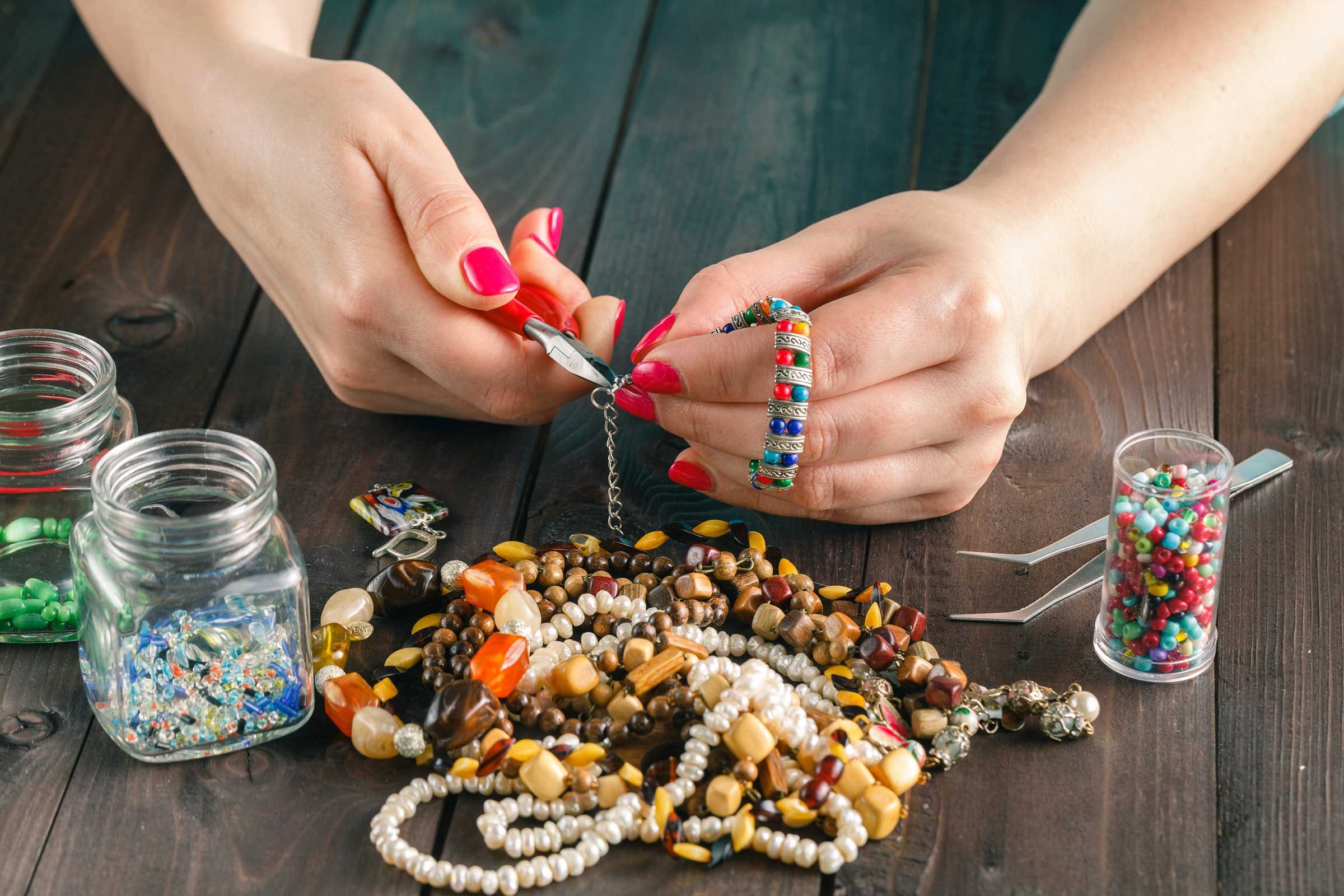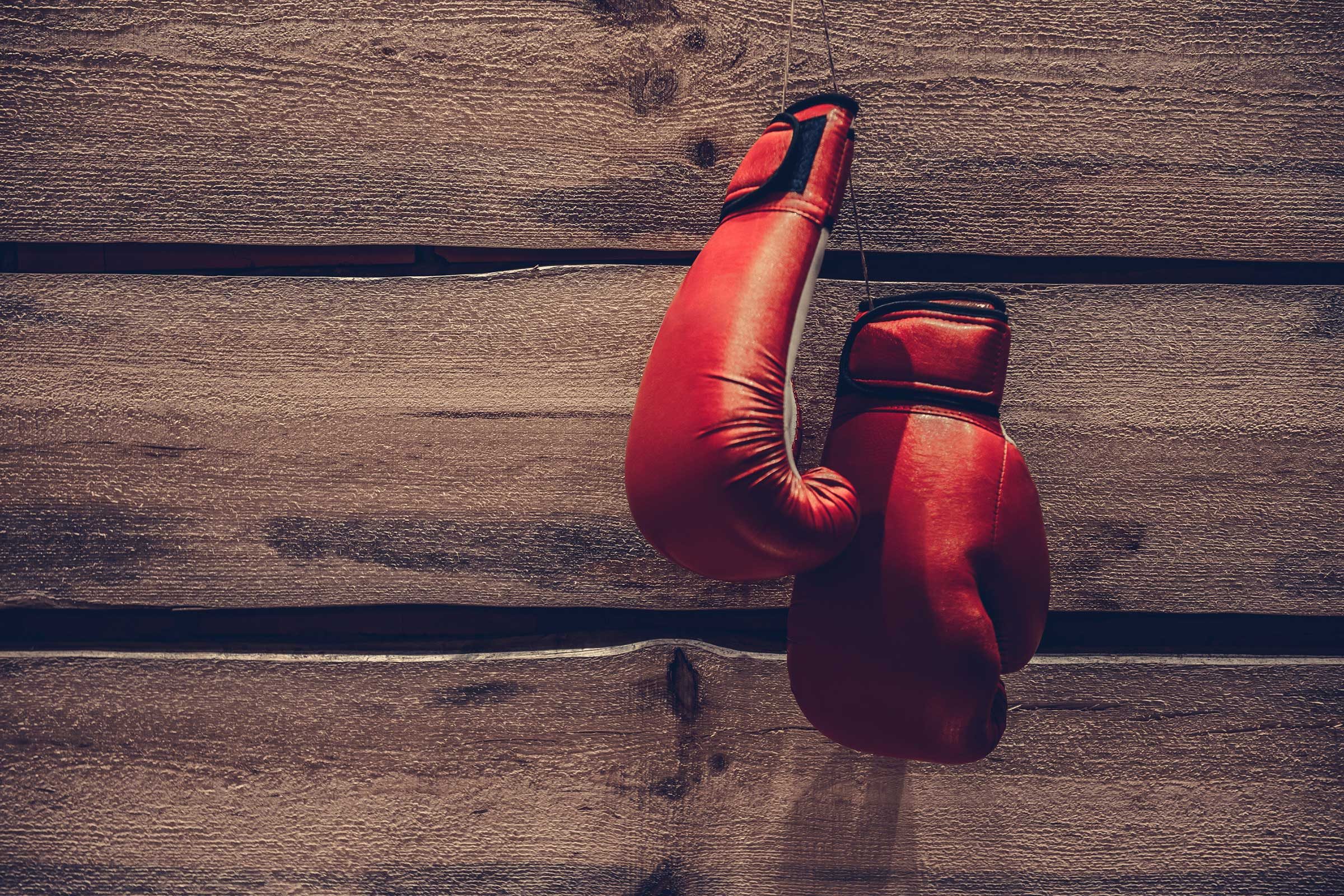
Don’t compare yourself to others
At just 27 years old, Daisy Jing, of Los Angeles, is already the owner of a multi-million dollar makeup company, Banish. But her success was not something she was always sure of, especially when she first took the leap to start her own company and got turned down by a roomful of powerful venture capitalists. But instead of feeling defeated, she realized she needed to focus on what made her and her business unique. “Now that social media is rampant, we get too caught up in other people’s lives. We compare ourselves with friends, families, and even celebrities but we forget that they’re only posting the best version of their lives, not their flaws,” she says. “Instead, focus on what you need to do and soon you’ll be proud of how far you’ve come instead of worrying about how far you have left to go. Stop comparing yourself to others; they have nothing to do with what you want to achieve.” (Related: Check out the weird effects social media can have on your brain.)

Banish the haters
Everyone who takes a risk is bound to meet someone who will tell them why it’s a bad idea. But if you truly want to achieve your goal, you have to surround yourself with positivity. “Determine what kind of people are best or worst for you,” Jing says. “I had to train myself to cut off negative people. I protect whatever goes in my mind because that will seriously affect what comes out.” Here’s how to develop a positive, can-do attitude that will help you tune out the haters.

Schedule time every day to work toward your goal
Writing a book is a huge project and, like many aspiring authors, Jim Jacobs felt so overwhelmed by the work that he let his dream languish for 10 years. But after a chance meeting with a publishing coach, the 47-year-old licensed clinical social worker and marriage counselor in Denver, Colorado, decided to bump the project back to the front burner, and within a year, he had his book written and published. The difference this time around? “I scheduled time to work on it every day,” he says. “I didn’t worry about getting it perfect, either. I just made sure to write every day.” You can always go back and edit it later, he adds.

They can’t say “yes” if you don’t ask
Jacobs’ publisher wanted a big name to write the forward to Jacobs’ book, but there was one problem: “I made a list of all the famous, important people I know,” he says, “and it had exactly zero people on it.” But he didn’t let that stop him. Instead, Jacobs made a list of everyone he thought would be ideal and then started cold-calling them one at a time. “Most of them did not even respond but eventually one did. He is a New York Times best-selling author and one of my favorite writers. He was intrigued by my proposal and agreed to it.” It took a lot of courage but Jacobs says it was well worth it in the end.

Don’t “find” the time, make it
Getting a master’s degree was always on Kellie McFarland’s bucket list but life—a career, marriage, travel—kept getting in the way. Then, just when she’d decided to finally buckle down and go back to school, she got a surprise: She was pregnant. “I wanted to quit, and when my baby was born it would have been the perfect out, but I wasn’t giving up on my goal this time,” says the 36-year-old real estate strategist in St. Louis, Missouri. So McFarland teleconferenced into classes while bouncing her baby next the computer, and did her homework while the baby napped. It wasn’t easy but because it was a priority, she made it work. “I learned there’s no such thing as ‘not enough time,'” she says. “If you want it badly enough, you will give something else up to make the time.” (Related: If you think you’re over-scheduled, we’ve got tricks for making the most of your free time.)

Find something to be grateful for each day
In the cold, dreary winter of 2013, Sahar Aker was living in Ohio and fighting a battle against severe depression—and losing. She felt trapped in darkness but was afraid to reach out to others and didn’t know what else to do. At the suggestion of her therapist, the 53-year-old Hawaiian made a goal: To take a picture of one thing of beauty every day and post it on Instagram. It may sound like a small thing but according to her therapist, being grateful and looking for the good in small things could translate into a big mental change. So she did it, each day posting a picture of something that spoke to her, tagged #ichoosebeauty. Within a week, she started to feel better, and soon others struggling with mental illness joined in. Three years later she’s turned her private struggle into a public movement—and her depression is now a thing of the past. “Focus on just one day at a time, one moment at a time” Aker says. “It literally takes less than a minute each day to find something good in the world.” Don’t miss the ways that being grateful can boost your health by lowering blood pressure and improving your sleep.

Make your goal a conscious choice
Making a choice to follow your dream may sound like an obvious tip, but too many people never take the day-to-day steps that would actually allow them to do it, Aker says. It’s even more effective if you make your choice public, so others can help hold you accountable. For Aker, this meant posting a beautiful picture online every single day, no matter how she was feeling. It wasn’t so much the picture that provided the benefits, she says, but rather the act of consciously choosing to do something positive every day that got her closer to her goal. “Choose to see what you want. Focus on anything you see, feel, hear, smell, taste, read, or remember that can help you,” she says. And then just do it!

Don’t be afraid to make mistakes
When Sarah Gore, 31, and her husband decided to move from Colorado to Germany, they knew it would be a big change, starting with the language. While her husband already spoke German, Gore knew she’d have to learn it if she wanted to fit in, besides that learning a new language was something she’d always wanted to do. Gore set an ambitious goal to learn the language in one year. As soon as they arrived in Germany, she started reading, writing, and listening as much as she could but even after several months, speaking still felt impossible. “I didn’t want to make mistakes and sound dumb,” she says. “But of course I made mistakes—lots of mistakes!” The key, she says, was learning to laugh at herself. And once she stopped being afraid of sounding silly she caught on quickly, realizing her goal. Within a year she was fluent in conversational German and had many great friends she otherwise never would have met.

Work. Work hard. Then work some more.
Learning a new language is something lots of people have on their bucket list but few actually accomplish, and that’s because it takes a lot of hard work—something Gore understands. “I knew it would be challenging to learn German in one year, so as soon as we arrived I immersed myself in it 24/7, taking every opportunity to listen and to practice,” she says. It was incredibly difficult but her hard work paid off. Now when people say they could never do what she did she has a ready answer. “I honestly believe there are very few things that people ‘can’t’ do, you just have to be willing to do the hard work.”

Don’t settle
Farrah Whey, 28, had long dreamed of becoming a doctor, but when she went to apply to medical school she encountered an unexpected roadblock. She had to choose between two types of programs, one that was easier to get into but wasn’t what she really wanted, and a second that was in her desired field but very competitive. Oh, and there was a huge catch: If she applied to the second program and wasn’t accepted, she was out of medical school all together. Instead of playing it safe, she went straight for her dream program. Now Whey has graduated from that program and is working as a family medicine doctor in New Brunswick, New Jersey. “Don’t let anyone talk you out of your goal,” she says. “It’s easy for people to tell you what they think you should do but at the end of the day, they’re not the ones who have to live your life. You need to do what makes you happy, not necessarily what makes you feel safe.”

Don’t let the bad days overshadow the good days
Getting accepted to her first-choice medical program wasn’t the end of Whey’s journey to her goal of becoming a doctor, it was just the beginning. What followed was years of agonizing work and self-doubt. “I think I only made it through medical school because I worked hard and simply refused to give up, even on the worst of days when I was doubting myself and wondering if I’d just somehow slipped through the cracks during the admissions process,” she says. “The road to where you want to be is seldom an easy journey, but it makes you appreciate it that much more when you finally make it there!”

Focus on the payoff
Losing 150 pounds is an accomplishment all on its own, but for Genevieve Jerome, the real goal was to keep it off. The 30-year-old wedding photographer in Sacramento, California, had lost weight by eating a healthy diet, lifting weights, and giving up alcohol. Her new lifestyle changes didn’t go over so well with her social circle, however, and she lost a lot of friends. For a time she wavered, wondering if it was worth it. It was: Not only did sticking to her guns help her maintain her healthy lifestyle and keep the weight off, but it also showed her who her true friends were. “I’m happy with the choices I’ve made, and the people who were meant to stay in my life have stayed,” she says, adding that her life now is exactly how she wants it to be.

Take baby steps
Many people have weight loss on their bucket list but few accomplish it, often getting overwhelmed by all the changes they have to make and giving up. And make no mistake, losing more pounds than the average woman weighs was a daunting goal, but Jerome says she accomplished it by making small changes, one at a time. “I started by just finding free fitness videos on Youtube. Then I made a list of healthy foods I enjoyed and tried to buy a few (and eat them!) every week,” she says. “Eventually these things became habits and now it’s just the way I live my life and I really enjoy it!” (Related: Steal the secrets of women who manage to work out every day.)

Make it about the journey, not the destination
Looking at marathoner Mindy Nienhouse today, you’d never guess that she’d once been overweight and terrified of exercise. But it’s true: The 33-year-old medical school program coordinator in Grand Rapids, Michigan, has long struggled with her health—and that’s something she wants people to know. “I didn’t get to 233 pounds because I preferred carrots over ice cream,” she says. “I tell people that I’m on a weight loss journey because it will never be over, there is no ‘finish line.’ It took a lot of hard work and determination to get where I am today, but without consistent dedication to my goals and to myself, I know that I could end up right back where I was.” It’s not something she’s overcome, she adds. Rather, it’s about making her health a priority every day. “Because I’m worth it!”

Just start already
Crossing an item off your bucket list can feel like a big deal—and it is!—but starting it shouldn’t be. A lot of items stay permanently on the bucket list because people have no idea where or how to dig in. But you’re making it too hard, Nienhouse says. “Just start. Today. You’ll never reach your goals waiting for the ‘right’ time,” she says. “Now is the right time. You’ll learn as you go.” (Related: Find out the sneaky reasons you never finish your to-do list.)

Practice mental toughness
With a 2.4-mile swim, a 112-mile bike ride, and a 26.2-mile run, an Ironman race is a serious physical challenge. But when it came to accomplishing it, Hannah Higgins, 39, a landscape architect in Chicago, discovered that the mental aspect would be the hardest part. “Training 14 or more hours a week, with all-day weekend workouts, by myself, was tough,” she says. “I felt so disconnected from everyone.” So she had to learn to rely on only herself to get through tough times and stay motivated. But it paid off big-time when she crossed the finish line. “The mental toughness I developed not only helped me on race day but in accomplishing other goals as well,” Higgins says.

Find support
Doing an Ironman race is a solo experience, but just like most goals, getting there is a group effort. “I thought the best part would be crossing the finish line. And while it was an amazing moment, it was actually the outpouring of love and support that I have received since then that has been the best reward,” Higgins says. Even though she had to do all the training herself, she realized how much her family and friends had been supporting her in other ways. “My heart was so full that I struggle to describe how humbled and lucky and loved I felt! I couldn’t have done it without them,” she adds.

Take the easier road (sometimes)
Getting an advanced college degree had long been a dream for Nadine Bonnet, 38, a mom of three in Denver, Colorado. As a mom she worried that the time to focus on her dreams had passed, but with her girls’ encouragement, she registered for classes at the local university. The key to balancing motherhood and full-time school, she says, is to set yourself up for success by staying organized with calendars, keeping supplies handy, and having back-ups. And don’t be afraid to take short-cuts. “It’s all about making things easy on yourself. As long as you’re getting it done, there is no rule that says you need to go about things the hard way,” she says. (Related: These heartwarming quotes about mothers will make you want to call yours today!)

Allow room for failure
It would have been easy for Bonnet to get discouraged. And balancing college and motherhood often meant some long nights and sad setbacks. “I had to take trigonometry twice and I had to drop physics,” she says. But instead of feeling like a failure, she learned to put it in perspective. “I learned from my failures. I had to be okay with letting go of things that were just not in my power,” she says. Don’t miss the ways to feel in control when everything’s going wrong.

It’s okay to be scared
When Catrina Vargas and Robert Cormell decided to turn their El Paso, Texas, restaurant into a non-profit safe house for troubled teens, they knew it would be a risk. How would they pay their bills? (They found side jobs.) How would they run a non-profit? (They learned.) How would they help teens with serious life problems? (With lots of love.) But even though they were scared, they didn’t let their fears stop them from providing a badly needed service. And now that the Wayside Teen Center has been going strong for 18 years and they’ve seen countless of their “kids” grow up to have beautiful families of their own, they know it was all worth it. “Doing something big is scary,” Vargas says. “Know that it’s going to be hard but you can do hard things.”

No quitting
Owning a restaurant was always a dream of the Vargas-Cormells, but as soon as they started to get to know the kids flooding in their door from the local high school, they knew their dream needed to change. Shifting from small-business owners to non-profit managers (who do house renovations on the side) was hard, but once they committed, Vargas says they never looked back. “You have to just take the option of quitting off the table. Once you decide to go for it, go all in and don’t look back,” she says.

Be optimistic, even when things aren’t looking up
Leaving high-powered city jobs for a peaceful rural life sounds like the ultimate dream to many people, but it’s a lot harder than it looks in the movies, as Liz Sedgwick, 38, can attest. When she and her husband decided a year ago to leave their stressful careers and start over in Logan, Utah, a small town in the Rocky Mountains, they had no idea how difficult it would be. But now that they’ve got their online custom jewelry business set up and are settled into country life with their two kids, they wouldn’t have it any other way. They key to making such a huge change? Attitude. “Be positive,” Sedgwick says. “You have to believe in yourself, even when no one else does. It’s the belief that your dream is possible that gets things done.” Adopt the simple habits optimists do every day to keep their outlook sunny.

Admit when something (or someone) isn’t helping and cut the loss
Getting rid of lifelong friends isn’t a typical bucket list item, but for Lora Johnson, a 31-year-old marketer in Minneapolis, Minnesota, it was the key to achieving the healthy balanced life she wanted and needed. In her 20s she says let people take advantage of her, fearing she’d lose friendships if she didn’t do everything they wanted, but earlier this year she realized that those one-way friendships aren’t real friendships after all. “I had to say good-bye to people who’d known me for decades,” she says. “It was hard.” But when it was all said and done, ditching her toxic friends alleviated a lot of pressure. “You need to take a step back and evaluate the people and relationships you have in your life,” Johnson says. “There are those that are a symbiotic and make you feel good. There are others that make you feel exhausted and stressed—those are the ones you need to eliminate.” Check out these subtle signs that you may be in a toxic relationship.

Cultivate relationships with like-minded folks
It sounds obvious, but joining a community of people working toward the same goal as you can make or break your mission, Johnson says. Not only can those people give you helpful tips and tricks, but they understand the ups and downs you’re experiencing better than anyone else can. “Spend time with the people who lift you up and support and help you,” Johnson says. “As a bonus, it will also help you weed out the ‘emotional vampires‘ in your life.”

Replace a negative habit with a positive one
Quitting a damaging habit, like smoking, is a great accomplishment, but it can be hard not to fall back into old habits, especially when things get tough. But Sue Gury, a 53-year-old forklift operator in Perry Hall, Maryland, has a great solution to that dilemma: Don’t just quit a bad habit—replace it. After smoking for 23 years, she knew she’d need something big to fill the void left by tobacco, so she took up running. At first she could barely run a mile but as she added on a little distance every day, she worked up to half-marathons, then marathons, and now this seasoned runner does ultra-marathons, running 100 miles at a stretch. And, she says, the high she gets crossing a finish line is so much better than any rush she ever got from smoking. Ready to quit the bad habit yourself? Check out these tips and tricks to help you stop smoking.

Break a big goal into smaller goals
Nobody starts off running 100 miles at a time, even a seasoned ultra-marathoner like Gury. In fact, she says that when she was a smoker, she couldn’t even imagine cruising around the block. But she didn’t let her lack of experience or fitness hold her back. “I started by walking and slowly threw running into the mix. Each day I went just a little farther,” she says. Not only do these bite-size goals feel more doable but they help reduce the risk of burnout and injury, she adds.

Jump in the deep end and swim
When Thea Ward Jorgensen, 31, of Bismark, North Dakota, left her job with benefits to follow her dream to open her own fitness studio, she had no idea how much she didn’t know about running a business. If she had, she says, she might never have made the leap. Instead, she spent the first year learning all the ins and outs of being an entrepreneur, all while juggling the daily things needed to keep her studio running. And she learned all these skills by simply doing them, sometimes over and over again, until she figured it out. “Don’t fear failure. You can’t. If you aren’t in over your head, how do you know how tall you are?” she says.

Just do something, anything
As any small business owner can attest, there is always something that needs doing. All these little fires to put out can sometimes feel like an overwhelming bonfire, one you’ll never be able to manage. But rather than getting bogged down in figuring out what’s next, Jorgensen says the trick is just to pick something—anything—and just do it. Checking one thing off your to-do list, even if it’s tiny, will keep you moving forward. “Remember that inaction is not an option. Things at rest stay at rest while things in motion stay in motion,” she says. “So keep pushing, because relentless forward motion will help you achieve your goals.”

Have a mission statement
Whether your goal is to start your dream business and be your own boss, like Jorgensen, or to climb Mt. Everest or write a novel, it’s not going to happen until you say it will. And this starts with asking yourself the most fundamental question. “You have to know your ‘why’,” Ward says. “Why are you doing what you are doing? What does it mean to you? How will it help you? What is your story?” Answering these questions (on paper, preferably) will remind you of your purpose and keep you going even when things get tough.

Trust your instincts
Even though she’s just 20 years old, Ellen Slater, a student at the University of Chicago, may look like she’s already got life all figured out. She has looks, talent, and smarts. But she also has Ehlers-Danlos Syndrome (EDS), a debilitating genetic disorder that affects the body’s connective tissues, and she lives in chronic pain (about an eight out of 10, most days). When she was first diagnosed, doctors told her she’d need to be heavily medicated and possibly in a wheelchair, but she knew that wasn’t going to work with the rigorous major she’d chosen. And so she chose to trust herself, and instead of medications and bed rest, she uses exercise as her “drug.” Now she’s a yoga teacher, a runner, and a successful student living on her own. “You have to trust that you know what’s best for you,” she says. “I’ve learned to do my own thing and be okay with that.”

Share your struggles, don’t hide them
Slater used to never talk about her pain and the other difficulties that come from living with Ehlers-Danlos Syndrome, but she says she’s learned there’s strength in sharing the hard stuff. “I don’t want to burden others with my pain, but I want them to understand that it really does make my situation feel so much harder,” she says. “I’ve also found that when I reach out, other people will share that they’re struggling with something that I didn’t know about. That always puts things in perspective for me. Then we can find a way to help each other.”

Be your own best friend, not your worst enemy
After trying every diet and fitness program out there, getting fit felt like an unreachable dream to Anna Raway, a 30-year-old special education teacher in Lakeville, Minnesota. That is, until she discovered boxing. She’d always wanted to try the sport but fears about her weight and her body held her back. “I’m a bigger girl and I’d used that as a reason not to try new things,” she says. But the boxing has taught her to see her body as her best asset, not an enemy. “I am finally putting myself and my health first,” she says. “It’s a happy bonus that I can work out whatever is stressing me out that day when I’m punching the bag.” These science-backed tricks can boost your confidence.